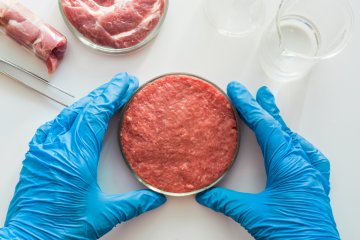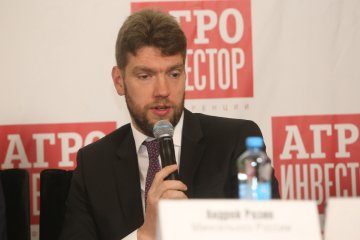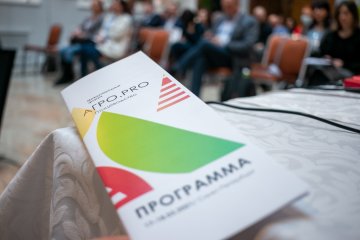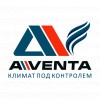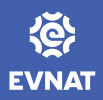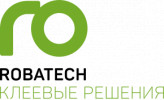Organic Meat in Russia: A Niche in Waiting
Demand for organic food in the Russian market relies heavily on upper-income consumers. Challenges facing Russian manufacturers include high retail prices and competition from uncertified fresh products sold directly from farms. The latter issue is particularly relevant for meat products. This is because a significant number of Russian farmers continue to rely on pasture to feed their cattle. The meat thus provided is not organically certified but is free from chemicals, relatively low in price and regarded as fresh and high in quality by most Russian consumers.
*Data for 2012-2015 is a forecast
Source: Euromonitor International
Economic environment
As disposable income is a key factor with regard to demand for more expensive food products, recent and future demand for organic meat in Russia has been heavily influenced by the economic cycle.
Russia's long period of stellar growth came to an end in 2009 when real GDP shrank by 7.8%. The sharp decline was primarily due to external shocks, including a drop in capital inflow and a plunge in commodity prices, which hit exporters hard. Increased joblessness and the uncertainty of households also depressed consumer spending during the downturn. This was the first Russian recession in a decade.
A fiscal stimulus valued at about 14% of nominal GDP and spread out over 2009 and 2010 helped to turn the economy around. Real GDP rose by 4.3% in 2011. Projections for economic growth in 2012 are strong, with the IMF forecasting GDP growth of 3.5%. High agricultural and energy commodity prices will continue to underpin the expansion of disposable income, particularly at the middle and upper end of the spectrum. The consensus among analysts is that the positive economic environment should represent an opportunity for organic food manufacturers. The steady expansion of disposable income among the middle-classes will benefit demand for more premium organic food formats, including meat.
*Source: Euromonitor International
Health environment and certification
Another key variable used to assess the expansion of organic food, including meat products, is the existing health awareness among Russian consumers and attempts from public bodies to increase it.
The Russian Ministry of Healthcare and Social Development launched a campaign in 2010 to encourage healthier lifestyles, targeting alcoholism, smoking and obesity. It devised a preventative healthcare programme, launching several educational campaigns under the slogan “It’s good!”. The campaigns focused on healthy eating, with an emphasis on better-for-you, fortified/functional and naturally healthy products.
Legislation on certification, however, continues to fall short of Western European standards, a fact that might hamper the expansion of organic food demand in the short term. Since 15 February 2010, there has been no obligatory certification for the food industry, including health and wellness packaged food and beverages. All Russian food manufacturers are compelled only to ensure that their products meet national food quality and safety standards rather than obtain certification. However, manufacturers are keen to present a strong image and they are ensuring that their products undergo a voluntary certification procedure.
The main obstacle to the development of organic food in Russia is therefore the absence of a regulatory body or national certification system. Sanitary requirements for organic food production came into force in July 2008, issued by Rospotrebnadzor, the Russian consumer safety regulatory and monitoring body. However, there are no clear rules for the labelling of organic products and no official certification system or certifying agency. As a result, Russian producers keen to operate in organic food have to obtain official certification from the EU in order to label their products as bio or organic, and be able to export them outside Russia.
In time, organic Russian food manufacturers are predicted to benefit from the introduction of stricter local regulation on organic certification. Until this comes, the legislative environment will continue to be a challenge to the steady expansion of demand for Russian organic food.
Demand for organic packaged food limited
The development of organic packaged food remained limited in 2011. An unusually hot summer in 2010, followed by drought and massive crop losses, raised food prices, which had an effect on demand for organic packaged food in Russia.
Although imported brands dominate, price increases were also influenced by inflation. In 2011, organic packaged food remained one of the smallest categories within health-positioned food in Russia. Retail value sales of organic packaged food totalled just US$176 million in 2011, accounting for just a 0.2% share of total packaged food retail value in the Russian market. As noted before, the low importance of organic formats is partly down to high unit prices and the absence of a national certification system.
This absence of a national certification system has forced some national manufacturers to obtain EU certificates, which has increased end prices significantly. The confusion surrounding certification and labelling makes prices of organic food extremely high. Such products are normally imported and positioned as premium or super-premium. The main consumers of organic food in Russia are high-income urbanites, largely in Moscow and St Petersburg, who tend to be aware of dietary issues. As a result, the main distribution channels for organic food are high-end supermarkets and health food stores.
A premium product sold through specialist retailers
Organic meat is mostly available through specialist retailers in large urban areas. One key example is Bio-Market stores in Moscow. These stores sell organic beef and chicken products, offering, among other things, lines under the umbrella brand Vse Svoe. Vse Svoe is a Russian company representing small farmers and private growers. It supplies natural, bio and organic products grown by individuals to retailers and directly to members of the Vse Svoe Club, who can register on the company’s website. Vse Svoe, in collaboration with Michurinsky Agrarian University, has developed its own organic quality standards. Products are grown without the use of pesticides and animals do not receive growth regulators or synthetic/artificial feed.
The price of organic beef sold under this brand, however, is fairly expensive and ranges from RUB6, 350-15,290 per kg. Vse Svoe includes in its range products such as organic horse, rabbit and pheasant meat. Overall, the target audience of Vse Svoe products comprises affluent consumers with strong awareness about the freshness and quality of organic food. In a significant number of cases, qualitative research shows that affluent Russian consumers buy organic meat for their children. This would justify the premium in price, as high-quality meat is regarded by most Russians as crucial to the correct development of their offspring.
A number of organic meat products are directly imported and sold through specialist outlets. Other than the aforementioned Bio-Market stores, imported organic brands are sold through retail chains such as Megacentre Italia and Globus Gourmet. The latter are based in Moscow and generally target affluent Russian consumers. Beyond Moscow, the distribution of imported organic meat is quite limited. In St Petersburg, sales are generally focused on the supermarket chain Land. Imported organic meat brands sold through Land supermarkets include names such as St Sever. St Sever organic food products are manufactured by a French farm which specialises in the production of organic chicken. Other imported meat products available in St Petersburg include fresh lines marketed as organic but sold unbranded. Some examples include Australian prime rib-eye steaks and New Zealand veal. In both cases, the products are positioned at the super-premium end of the market and target mostly affluent consumers.
While not yet present within the meat category, organic food has also started to become available in private label formats. Auchan, a multinational retail chain, and one of the leading retailers in Russia, has started to import private label organic food in an attempt to develop the organic packaged food category in Russia. Interestingly, organic dried pasta, organic canned/preserved ready meals and vegetables and organic sauces, dressings and condiments are available under the Mieux Vivre (Better Life) private label line at reasonable prices.
Future direction
Overall, organic packaged food sales are projected to grow by 30% in retail volume over the 2010-2015 period. Value sales are forecast to total US$225 million in 2015, according to Euromonitor International’s projections. This growth will be driven by new product development, improved distribution and increasing demand from more affluent Russian consumers. On the one hand, increasing availability through supermarkets will widen the consumer base. On the other hand, growing health awareness, due to the promotion of healthy eating and education about dietary issues, will create stronger demand.
Despite this robust growth, the consensus among analysts is that demand for organic food, both in packaged and unpackaged formats, will continue to remain relatively low in Russia. This forecast is not, however, carved in stone. Strong economic growth on the back of high agricultural and energy commodity prices could push projected current estimates for organic food consumption higher. Educational campaigns targeting middle-class Russian consumers would help to raise awareness about the health benefits of organic food among a large part of the population. Developing mid-priced organic brands and expanding their distribution to supermarkets in lower-tier cities would also contribute to mid-term growth. These initiatives, however, could prove fruitless if strict organic certification is not rigorously implemented. Consumers paying a premium for the health benefits of organic meat need to know that the products they buy adhere to rigorous national and international standards. Until this is accomplished, competition from uncertified fresh products, regarded as high in quality and chemical-free, will continue to hamper demand for more expensive certified organic food in Russia.


